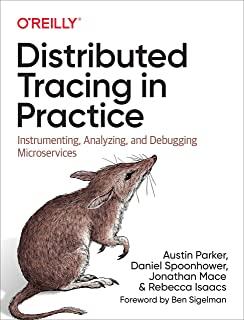How to get an edge in the Realm of Software Development
A career in the field of software development remains immensely popular due to various factors. Chief among them of course is the higher compensation and lucrative pay scale in the IT industry when compared to other career options. In addition, the flexibility of work hours and the sheer sense of achievement experienced by one while creating new programs are unsurpassed by any other job.
Popularity and reach of Software Programs

Software programming has become a quintessential part of our day to day life, right from the smartphones in your pocket, to video gaming, and everything in between. The opportunities in this field are truly astounding. The niches for specializing are also diverse, from creating operating systems, to mobile app development, or web app development to name a few.
There are various ways in which you can distinguish yourself in the market for the much coveted title of software programmer. Here, we focus on some of them.
Education counts, but Learning is the Key!
An engineering degree remains one of the top ten popular educational courses. According to NCES , there are a large amount of people clamoring for an engineering degree. It is also among the top 10 degrees that pay well. In addition, it is also among the six degrees that rank highest as far as employment opportunities are concerned, according to the poll from consulting firm Challenger, Gray & Christmas.
Many believe that a fancy degree is important for becoming a software developer. Not completely true. Here’s why. Although a fancy degree would get you an entry to the elite group of software programmer, it is not guaranteed to keep you there. This is because IT industry constantly undergoes change. Only someone who can adapt accordingly would be able to remain in the software development field. To do so, it is important to keep learning!
The various tutorials available online like W3schools are good sources to learn programming. Other major players in this field include Google code University, Codeacademy etc.
In addition, various courses and certificates are offered by institutes on software programming. Eminent teachers and skilled professionals in those institutes could also help in this regard.
Always have a specialization
It is better to have a specialized field or niche for software development in order to have a concrete career. Working on various technologies and languages within a short time frame would result in a scattered and non-streamlined format of resume, hindering career growth. It is best to focus on one specialization.
For those who intend to wade into web app development, it would be imperative to learn various aspect of web development like HTML, CSS, ASP.NET, Perl, Java etc. An interesting read in with regard to Web development is available in oreilly website.
In case you are interested in the development of Operating systems, a good place to start would be this tutorial in codeproject. It gives an overview about how to go about creating your own OS.
Many other categories of software development are available for specialization like Applications development for non-web based software; embedded systems development; Test Automation and the lesser known scientific development. An overview of these could be seen here.
Out of the varied programming languages available, it is always smarter to specialize in a programming language that has a consistent track record as well as good demand. This report on Top 10 programming languages gives an idea about the trending 10 languages in demand.
Remember, the world runs on Google today. Isn’t it hard to believe it is been around for just about 10 years now? Paradigm shifts happen, and IT industry is more like a rule than exception in this regard.
There are also numerous new programming languages getting introduced that could potentially reinvent IT industry.
Learn about methodologies and practices in the software Industry
It’s a common rookie mistake to assume that software developer just needs to be an expert programmer. Not True! As a programmer, you should also be aware of the various software development methodologies followed in the organization for the development of the final product. These could include methodologies like Spiral Model, iterative Model, Agile model, Scrum Model, and Waterfall model to name a few. Each of these methodologies has their own advantages and disadvantages and you might have to do a thorough research to assess the future potential of these methodologies before you decide to take a plunge.
Keep updating and reinventing your programming skills
Always have an idea about the popular trends and skills that are in demand. Then update your skillset to reflect those changes that are in demand. To stay on top of the game, it is always advisable to brush up on your programming skills and keep learning the new things that are released or scheduled to be released. Signing up in forums or blogs are good ways to make this happen.
If you are self-motivated as well as someone who keeps an eye on the pulse of software development, this is a perfect career choice for you! Just keep practicing!!
other blog entries
Course Directory [training on all levels]
- .NET Classes
- Agile/Scrum Classes
- AI Classes
- Ajax Classes
- Android and iPhone Programming Classes
- Blaze Advisor Classes
- C Programming Classes
- C# Programming Classes
- C++ Programming Classes
- Cisco Classes
- Cloud Classes
- CompTIA Classes
- Crystal Reports Classes
- Design Patterns Classes
- DevOps Classes
- Foundations of Web Design & Web Authoring Classes
- Git, Jira, Wicket, Gradle, Tableau Classes
- IBM Classes
- Java Programming Classes
- JBoss Administration Classes
- JUnit, TDD, CPTC, Web Penetration Classes
- Linux Unix Classes
- Machine Learning Classes
- Microsoft Classes
- Microsoft Development Classes
- Microsoft SQL Server Classes
- Microsoft Team Foundation Server Classes
- Microsoft Windows Server Classes
- Oracle, MySQL, Cassandra, Hadoop Database Classes
- Perl Programming Classes
- Python Programming Classes
- Ruby Programming Classes
- Security Classes
- SharePoint Classes
- SOA Classes
- Tcl, Awk, Bash, Shell Classes
- UML Classes
- VMWare Classes
- Web Development Classes
- Web Services Classes
- Weblogic Administration Classes
- XML Classes
- ASP.NET Core MVC (VS2022)
7 July, 2025 - 8 July, 2025 - LINUX SHELL SCRIPTING
30 June, 2025 - 1 July, 2025 - RED HAT ENTERPRISE LINUX SYSTEMS ADMIN I
19 May, 2025 - 23 May, 2025 - Object Oriented Analysis and Design Using UML
9 June, 2025 - 13 June, 2025 - Introduction to Spring 6, Spring Boot 3, and Spring REST
12 May, 2025 - 16 May, 2025 - See our complete public course listing
did you know? HSG is one of the foremost training companies in the United States
Our courses focus on two areas: the most current and critical object-oriented and component based tools, technologies and languages; and the fundamentals of effective development methodology. Our programs are designed to deliver technology essentials while improving development staff productivity.
An experienced trainer and faculty member will identify the client's individual training requirements, then adapt and tailor the course appropriately. Our custom training solutions reduce time, risk and cost while keeping development teams motivated. The Hartmann Software Group's faculty consists of veteran software engineers, some of whom currently teach at several Colorado Universities. Our faculty's wealth of knowledge combined with their continued real world consulting experience enables us to produce more effective training programs to ensure our clients receive the highest quality and most relevant instruction available. Instruction is available at client locations or at various training facilities located in the metropolitan Denver area.
Upcoming Classes
- ASP.NET Core MVC (VS2022)
7 July, 2025 - 8 July, 2025 - LINUX SHELL SCRIPTING
30 June, 2025 - 1 July, 2025 - RED HAT ENTERPRISE LINUX SYSTEMS ADMIN I
19 May, 2025 - 23 May, 2025 - Object Oriented Analysis and Design Using UML
9 June, 2025 - 13 June, 2025 - Introduction to Spring 6, Spring Boot 3, and Spring REST
12 May, 2025 - 16 May, 2025 - See our complete public course listing
consulting services we do what we know ... write software
The coaching program integrates our course instruction with hands on software development practices. By employing XP (Extreme Programming) techniques, we teach students as follows:
Configure and integrate the needed development tools
MOntitor each students progress and offer feedback, perspective and alternatives when needed.
Establish an Action plan to yield a set of deliverables in order to guarantee productive learning.
Establish an Commit to a deliverable time line.
Hold each student accountable to a standard that is comparable to that of an engineer/project manager with at least one year's experience in the field.
These coaching cycles typically last 2-4 weeks in duration.
Business Rule isolation and integration for large scale systems using Blaze Advisor
Develop Java, .NET, Perl, Python, TCL and C++ related technologies for Web, Telephony, Transactional i.e. financial and a variety of other considerations.
Windows and Unix/Linux System Administration.
Application Server Administration, in particular, Weblogic, Oracle and JBoss.
Desperate application communication by way of Web Services (SOAP & Restful), RMI, EJBs, Sockets, HTTP, FTP and a number of other protocols.
Graphics Rich application development work i.e. fat clients and/or Web Clients to include graphic design
Performance improvement through code rewrites, code interpreter enhancements, inline and native code compilations and system alterations.
Mentoring of IT and Business Teams for quick and guaranteed expertise transfer.
Architect both small and large software development systems to include: Data Dictionaries, UML Diagrams, Software & Systems Selections and more














